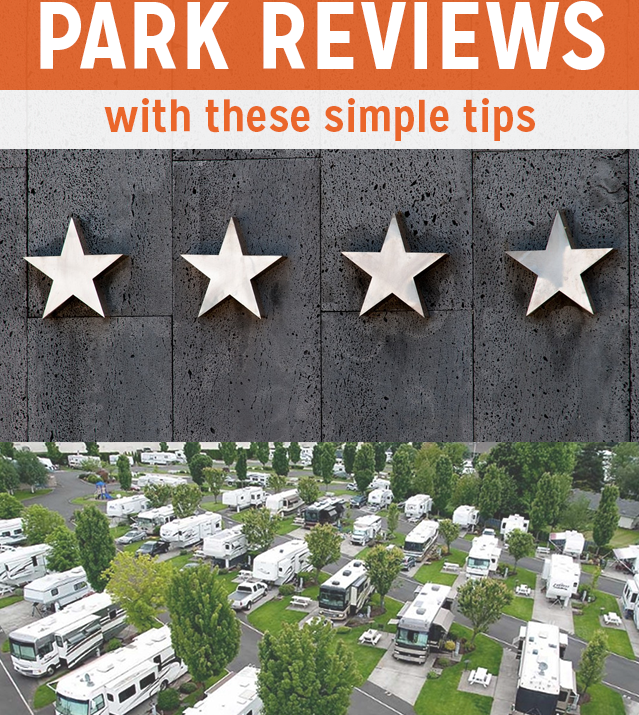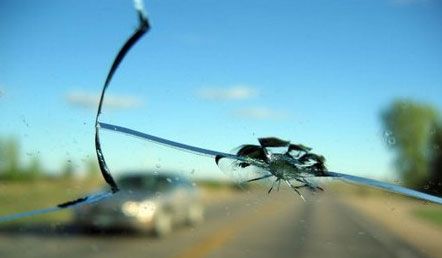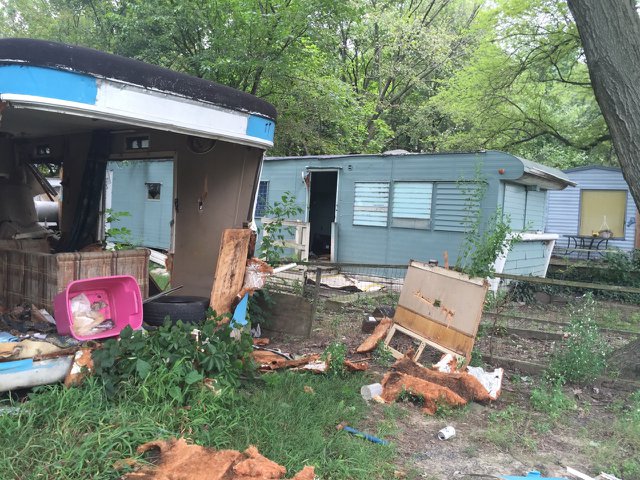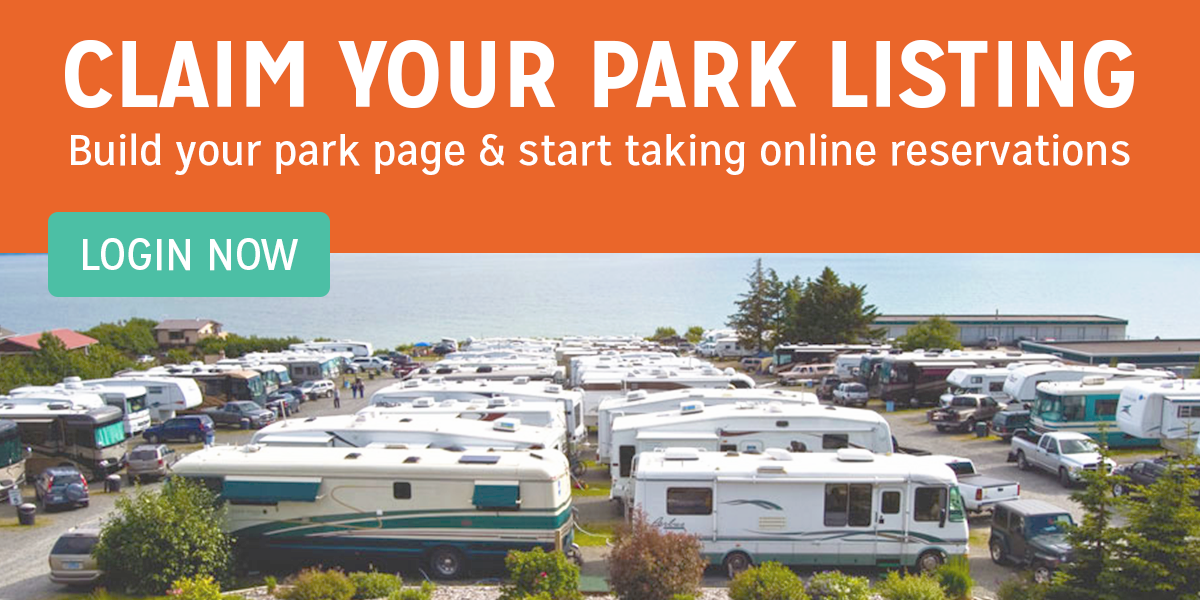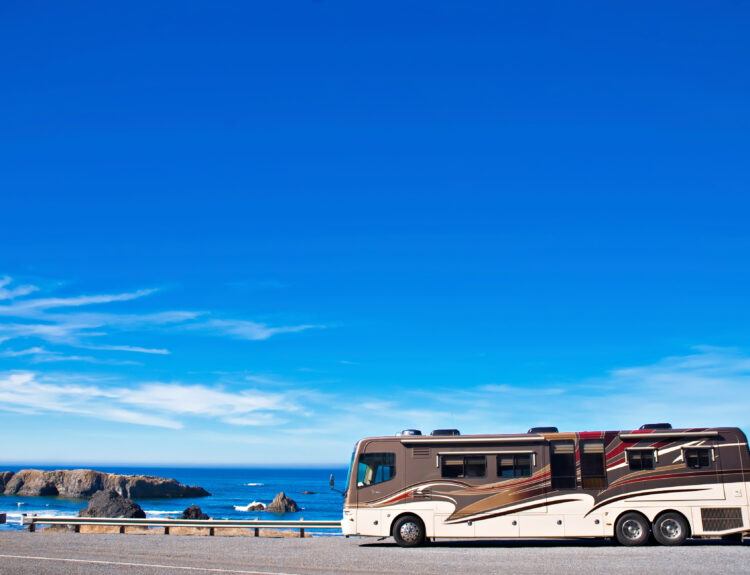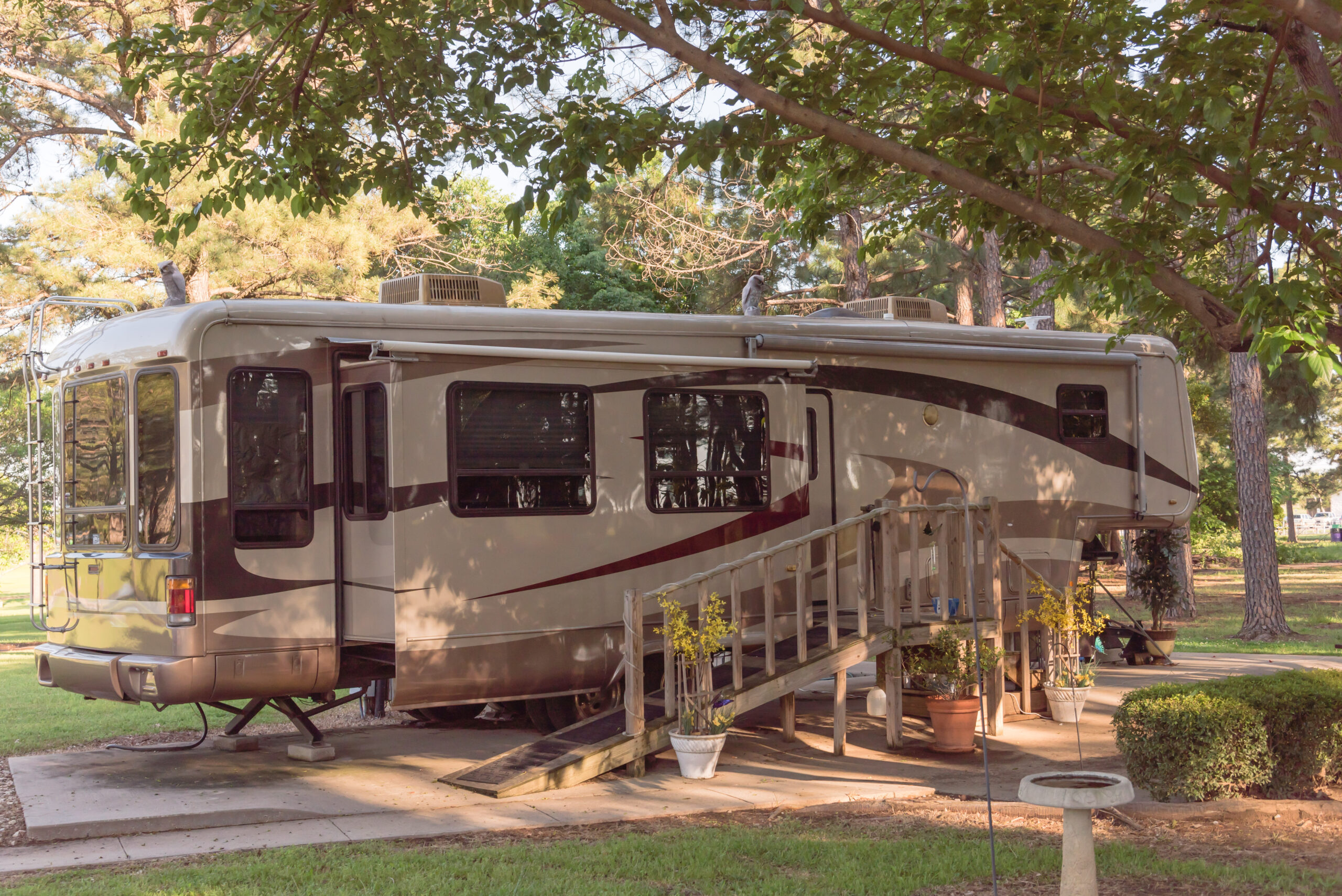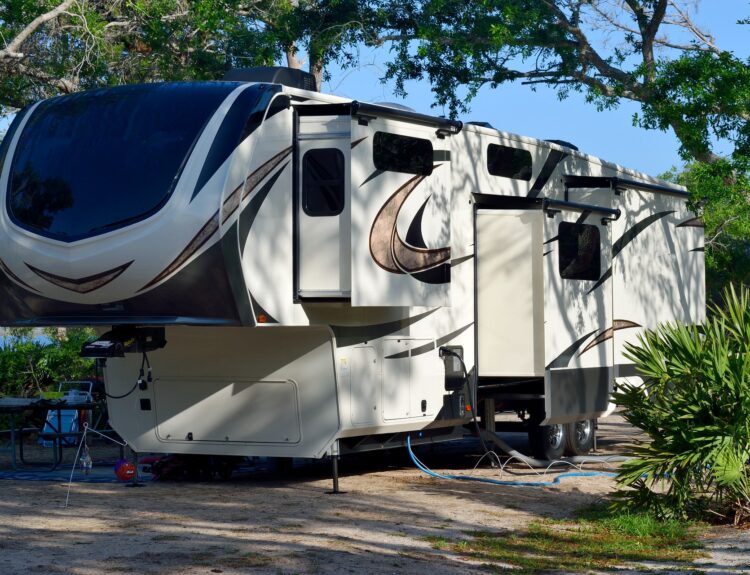Websites like RVParkReviews.com and Yelp –where your customers go to leave bad RV park reviews– are either the best thing or worst thing that happened to mom and pop campground businesses since the invention of the ‘net. Between these two sites, plus RoverPass and many more, thousands of RVers have lots of options for rating campgrounds around the country on criteria like park appearance, amenities, staff friendliness, and more. We will show you how to avoid bad RV park reviews. While it’s not the end of the world when a guest has a negative experience, if those one- and two-star reviews become a regular thing, you will see a drastic drop in reservations.
Reviewers put a lot of time into describing their RV park experiences. They write about campground owners who go out of their way to make sure guests are fully satisfied with their home away from home; as well as the crummy park they wasted $40 on, pointing out every burnt-out light bulb and weak internet connection. Typically, most reviews give campground owners the benefit of the doubt. But once a review is live, there’s not much you can do to improve your rating (though certain sites, like Yelp, allow business owners to politely respond to customers). So rather than letting your blood pressure soar into heart-attack territory, it’s to your advantage to see these reviews as useful criticism and immediately start making improvements to your property, staff, and management protocols.
To help you avoid bad RV park reviews, we’ve compiled a list of the top reasons customers will strike a star when reviewing your park.
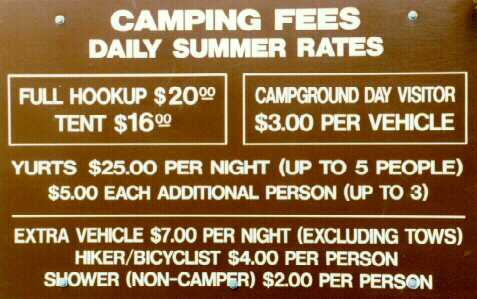
Neglecting to post all fees up front is one way to get on your guests’ bad side.
Undisclosed fees, charges, and penalties
You could have the cleanest park and all the amenities an RVer could dream of, but if you nickel and dime your customers, they will express their displeasure loud and clear by striking a couple of stars. Here is how to avoid bad RV park reviews. One camper who spent a weekend at an RV park in Grapevine, Texas, complained about several unforeseen charges on his bill. According to the guest, the campground charged a “non-disclosed” deposit and charged extra whenever he used plastic rather than cash. Businesses in every industry are charged around 2% per credit card swipe and most pass that fee on to customers. So you’re not the only one to deal with the customer backlash on this issue. Just state in your billing policies—in no uncertain terms—that customers using credit cards will be responsible for the bank’s fee and that they can avoid the penalty by paying with cash.
Bad management
Bad management can cover anything from unfriendly staff to neglected facilities (nearly every review will mention either outstanding or hideous shower and toilet cleanliness) which is not how to avoid bad RV park reviews. One reviewer who stayed at an otherwise highly-rated RV campground in Aguanga, CA, took issue with how the park’s front office staff handled a property damage claim. After a lawnmower flung a rock and cracked the RV’s windshield, the guest tried to file a complaint at the office and the desk staff promptly split. According to the guest, management never responded to emails or returned phone calls. The customer wrote a detailed account of the negligence shown by campground staff and published the cost of repairs. This is the kind of review that RVers will remember when deciding whether to stay at your park or one that’s just a few miles down the road and has reviews that praise the warm, friendly, attentive staff.
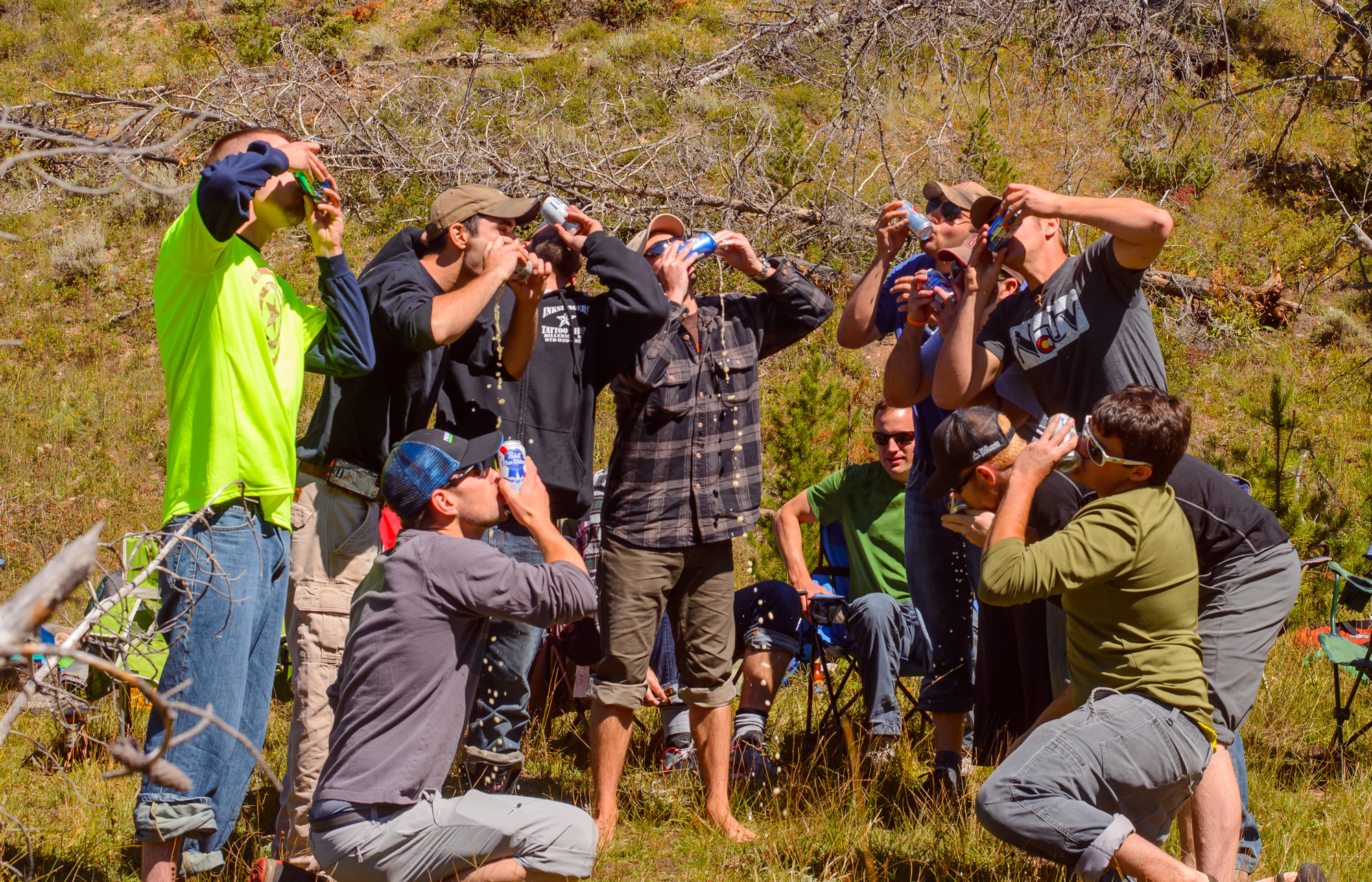
Instead of bad RV park reviews, what about rating RV park neighbors?
Loud neighbors
Combine a much-anticipated weekend getaway, a group of friends eager to blow off some steam, and as much Coors Light as you can fit into a few 150-quart Igloos. In no time, you’ll have a small crowd of drunk coeds singing “Bye, Bye Miss American Pie” on an endless, out-of-tune loop. And these are the friendly campground partiers. Unfortunately, there are a percentage of RVers out there who have an explosive temper and just don’t know when to take a timeout. The only safe recourse a neighbor has is to call management and hope there’s a plan in place – whether it’s quieting unruly campers, or an offer to immediately move the put-out party.
Campground management are certainly not responsible for policing loud patrons. But how they handle this all-too-common situation could be the difference between a nasty review and one that showers staff with compliments for helping to salvage a family’s peaceful weekend. Park owners should keep in mind that in a situation like this, the very worst thing you can do is nothing. This is how to avoid bad RV park reviews.
Property misrepresentation
The last place you should be featuring your amazing road trip photography is on your business website. Campers scour the internet for just the right campground in just the right location. They compare everything from your hookup stations, lot sizes, on-site facilities, and views. If you’re posting snapshots from your personal travels just because you believe all forests in the southwest look the same, you’re going to have more than a few customers who feel they’ve been duped. One RVer who stayed at a park in southern California said that after pulling into the campground, he immediately noticed that there was absolutely no resemblance to the photos featured on the park’s website. Not only that, it was also “ramshackle” and “run down.” “Anyone with eyes won’t like it,” he wrote. Ouch.
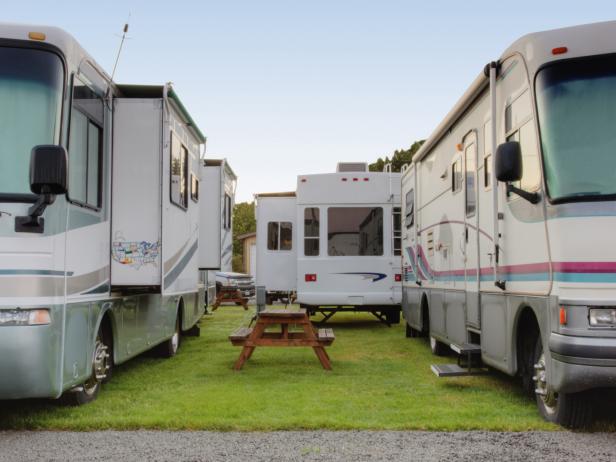
Online, the lots appeared more spacious.
Crowded lots
If your RV lot sizes are small, it will not benefit you in the least to hide this fact. Every single RVer who drives onto your property will know from the word go whether they can open their slides or park a few lawn chairs and a BBQ in front of their rig. If this sounds like your park, know that while campers may not pack up and end their weekend early, they certainly will cross your property off their list of campgrounds to visit again in the future. What you should be most concerned about, though, is if they go straight to the ‘net to sound-off on the tight quarters. One reviewer said about a park located in a popular vacation hamlet near Anchorage, Alaska, “You can hand beer to your neighbor from your window.” For many RVers, this is not a perk and not how to avoid bad RV park reviews.
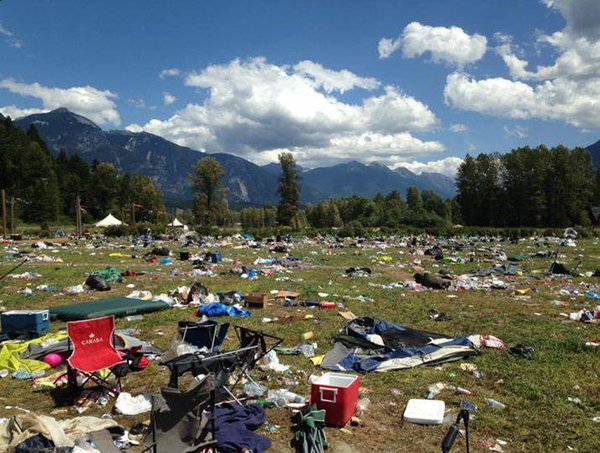
Messy grounds is the number-one reason guests leave bad RV park reviews.
Property maintenance
One would think that a park with filthy bathrooms, overflowing garbage cans, litter everywhere, broken toilets or laundry facilities, are either on the last month of their lease, or they should never have been in the tourism industry to begin with. A reviewer who spent a few nights at an RV park on the Tennessee-Kentucky border was extremely disappointed with his return visit to a park he’s patronized more than a few times over the past 15 years. His overall rating, two stars, was for dirty showers, “even more than one would expect during a high usage period.” Also, the toilet and towel dispensers were empty for hours at a time; and the site’s new concrete pads weren’t level. It’s bad enough for an RVer when one of her favorite parks goes downhill, but to then see a 25% price increase adds insult to injury.
Rude staff
A career in the travel and leisure profession is one of the hardest careers to excel in but here is how to avoid bad RV park reviews. You and your staff can bend over backwards for 99% of your customers and there will still be that one impossible-to-please guest. He will complain about loud neighbors and barking dogs; he will stop your maintenance crew throughout the day with service request after service request, she will call the front desk with questions that you’ve addressed on your website’s FAQ page and in your brochure and free camper literature. There are the guests who will demand a full refund, even after you’ve solved their problem, and those who threaten to call the boss or state licensing agencies because they disagree with laws or rules that campground owners have no control over.
The only appropriate way to treat even the most verbally abusive patron is to apologize for not having a satisfactory solution. Anything other than a sincere, “I apologize we were unable to meet your expectations,” will get you a 1-star rating (the lowest you can go), and a vitriolic review. The good news is that as long as you are doing your job and providing good customer service, these are the type of reviews that most people take with a grain of salt.

Today’s campers want a television and internet signal.
Too few amenities
One of the reasons you got into this business was because of your love of the outdoors: hiking and fishing, campfire camaraderie, outdoor cooking, singing campground ditties with the little ones, then enjoying libations and chatting around the fire with the grownups. Today, more and more campers are demanding that sites have fast Wifi and cable TV. It doesn’t matter whether you offer miles of walking trails, have a marina or boat ramp, whether the property is pet friendly, or the facilities are sparkling clean. If campers can’t watch this week’s episode of Game of Thrones or Snapchat with their buddies back home, your reviews will reflect the “almost worthless” Wifi connection (at a site near Annapolis, Missouri) or, like one park in southern Mississippi, the “deal-breaker” of all deal-breakers, no cable!
Remember to stay the course
The best way to know how to avoid bad RV park reviews is to be gracious and try to correct the mistakes that guests complain about the most. If you have the option, ask reviewers what you can do to make their next stay better. One-on-one interactions with your guests is a great way to up your rating. And most guests will write about your eagerness to please.

